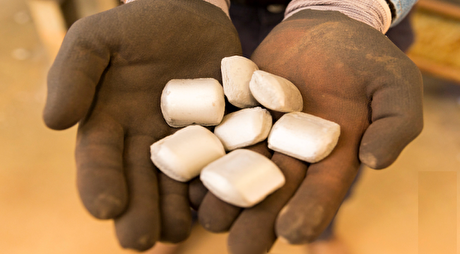
Sri Lanka Eyeing Broader Commercial Ties with Iran
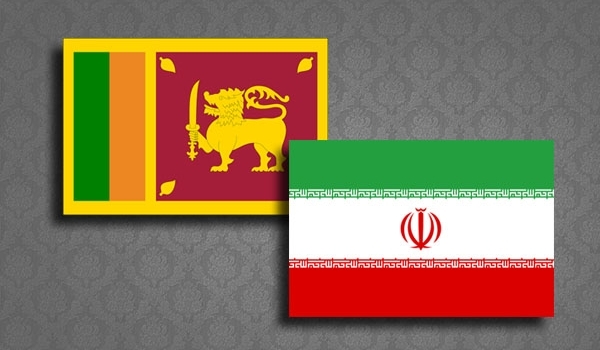
Sri Lankan government on Thursday stressed the need for resuming exports of tea to Iran.
In a cabinet meeting, the country's government announced that tea exports to Iran should start as of the next month.
Sri Lankan agriculture minister said that the country is set to resume tea exports to Iran by the end of August.
Following Turkey and Russia, Iran is one of the major buyers of Sri Lankan tea, as Colombo exported 27,419 tons of the product to Tehran last year.
Sri Lanka is an island country in South Asia, located in the Indian Ocean to the southwest of the Bay of Bengal and to the southeast of the Arabian Sea.
Most of Iran's trade and economic exchanges with the country is in the fields of constructing refinery, oil and tea.
Iran was involved in renovating an old refinery in the country and is also seeking to build a new one.
Earlier this month, Sri Lankan Plantation Industries Ministry Secretary J.A. Ranjith said that Sri Lankan Foreign Minister Tilak Marapana and Minister of Plantation Industries Navin Dissanayake held a meeting at the Foreign Ministry to discuss the plan for increasing trade ties with Iran late in June.
Sri Lankan tea exporters are currently facing a crisis since not only has the prices of tea dropped but the industry is unable to export to some of its key markets due to trade sanctions imposed on dollar transactions with Iran by the US.
During the meeting they had discussed how to resolve the issue pertaining to the sale of Ceylon Tea to Iran due to the current US sanctions imposed on Iran as a result of which banks refuse to engage in dollar transactions with Iranian banks.
“As a result, now we are looking at settling this through the loans from the Ceylon Petroleum Corporation (CPC) amounting to US$200 million,” the ministry secretary said.
At the moment the officials were working out the mechanism to be adopted to settle this without any transactions, he said.
Ranjith explained that if this would be adopted they could sell tea to Iran for the next two years under this arrangement. The rate at which tea could be bought would be based on the market realities, he said.
As part of the transaction the CPC has agreed to pay the tea exporters some of the money directly thereby avoiding any financial transaction between the two countries in the sale of tea, the ministry secretary stated.
In the meantime, Iranian officials were also engaged in discussions to work out a mechanism on how the deal can go through and in this respect negotiations were still underway.
In 2018, Sri Lanka sold 23,914 metric tonnes (MT) of tea to Iran and in the previous year it was much higher at 27,418 MT. Iran is among the top five markets that purchases teas from Sri Lanka. The other key markets are Iraq, Turkey and Russia.
Back in mid-February, Sri Lankan Ambassador to Iran Mohammad Sharif Anis said that his country is after bolstering economic relations with Iran, voicing hope that the upcoming opening of Tehran-Colombo direct flights further improve interactions between the two countries.
Anis said on February 16 in a meeting with economic activists in Iran’s central province of Yazd, that promoting economic relations between his country and Yazd province will benefit both countries.
He added that efforts are underway to pave the ground for investment, concluding necessary deal and communications with industrial and production activists.
Referring to Sri Lankan capacities, he mentioned tower building, construction materials, road and bridge building as suitable areas for investment by the Iranian companies.
Tehran-Colombo direct flight will soon become operational which can help promote tourism and economic activities, he said.
Yazd economic activists pointed to the province's capacities, including export of tiles, stones, fabric and powder milk and welcomed exchanges with the country.
Early in August, Iranian Foreign Minister Mohammad Javad Zarif visited the South Asian country and met with his Sri Lankan counterpart Marapana in Colombo where the two sides discussed bilateral relations, specially in economic fields.
During the meeting in the Sri Lankan capital, the Iranian and Sri Lankan foreign ministers explored avenues for bolstering and reinvigorating mutual cooperation in trade and economic areas, including in energy, petrochemicals, construction, banking and agriculture.
The two sides also examined closer cooperation on global issues.
In a relevant development in late April 2018, Iranian Parliament Speaker Ali Larijani in a meeting with Sri Lankan Prime Minister Ranil Wickremesinghe in Colombo underlined the need for enhancing mutual cooperation between the two countries.
"Considering the age-old trade relations between Iran and Sri Lanka, the chambers of commerce of the two countries can play a bold role with their familiarity with the areas of cooperation,” Larijani said during the meeting in the Sri Lankan capital.
The Iranian parliament speaker underlined that one of the objectives of his visit to Sri Lanka is to expand parliamentary and economic relations between Tehran and Colombo.
The Sri Lankan prime minister, for his part, reassured that Sri Lanka is after normalizing relations with Iran.
"The Sri Lankan president will soon travel to Iran and his visit will create new grounds for cooperation," he said.
The Sri Lankan prime minister expressed the hope that the level of economic ties between the two countries is growing in consistent with the growth in political relations.
In relevant remarks in January 2015, Iranian President Hassan Rouhani said that Tehran is determined to strengthen ties with friendly nations, including Sri Lanka.
In a message to Sri Lankan President Maithripala Sirisena, President Rouhani extended his congratulations to Sirisena on his election as the country's president, and expressed the hope that the bilateral relations between Tehran and Colombo would witness further enhancement in his tenure.
"I sincerely congratulate Your Excellency's election as the president of the friend country, Sri Lanka," wrote President Rouhani in his message.


Caterpillar sees US tariff hit of up to $1.5 billion this year

Australia pledges $87M to rescue Trafigura’s Nyrstar smelters in critical minerals push

SAIL Bhilai Steel relies on Danieli proprietary technology to expand plate mill portfolio to higher steel grades

Alba Discloses its Financial Results for the Second Quarter and H1 of 2025
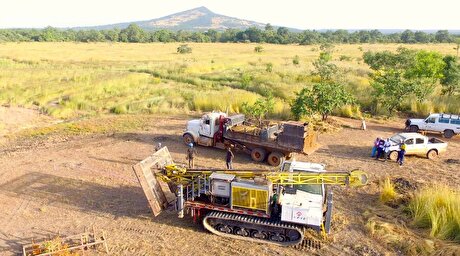
Fortuna rises on improved resource estimate for Senegal gold project
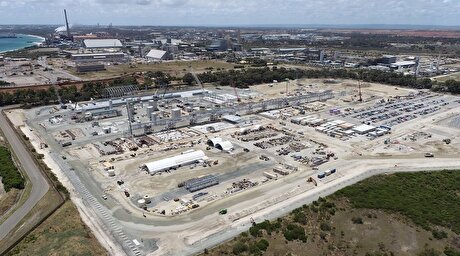
Tianqi Lithium Australia JV says it is prioritizing long-term viability of refinery

Copper price slips as unwinding of tariff trade boosts LME stockpiles

US slaps tariffs on 1-kg, 100-oz gold bars: Financial Times

Fresnillo lifts gold forecast on strong first-half surge

De Beers strikes first kimberlite field in 30 years

Minera Alamos buys Equinox’s Nevada assets for $115M
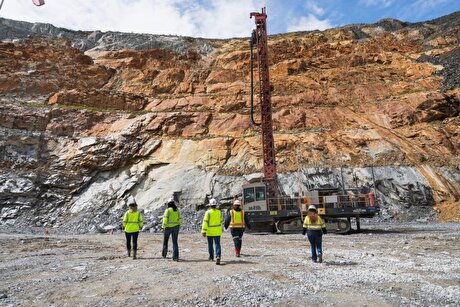
OceanaGold hits new high on strong Q2 results

What’s next for the USGS critical mineral list

South Africa looks to join international diamond marketing push

Copper price gains on Chinese demand, Chilean supply risks

Gold exploration spend trending down despite higher prices – S&P Global

A global market based on gold bars shudders on tariff threat

New research reveals source of world’s richest lithium deposits

Century Aluminum to invest $50M in Mt. Holly smelter restart in South Carolina

De Beers strikes first kimberlite field in 30 years

Minera Alamos buys Equinox’s Nevada assets for $115M

OceanaGold hits new high on strong Q2 results

South Africa looks to join international diamond marketing push

Copper price gains on Chinese demand, Chilean supply risks

Gold exploration spend trending down despite higher prices – S&P Global

A global market based on gold bars shudders on tariff threat

Century Aluminum to invest $50M in Mt. Holly smelter restart in South Carolina

Australia to invest $33 million to boost Liontown’s Kathleen lithium operations
